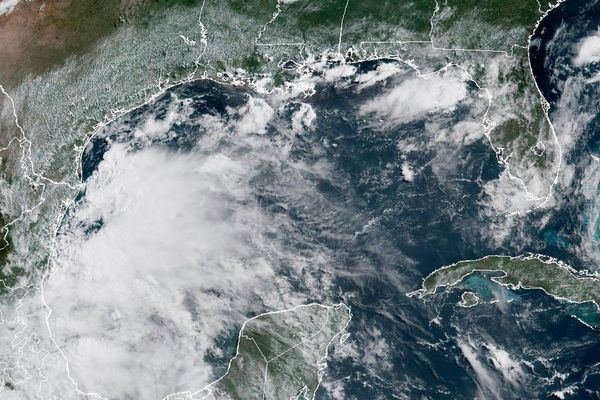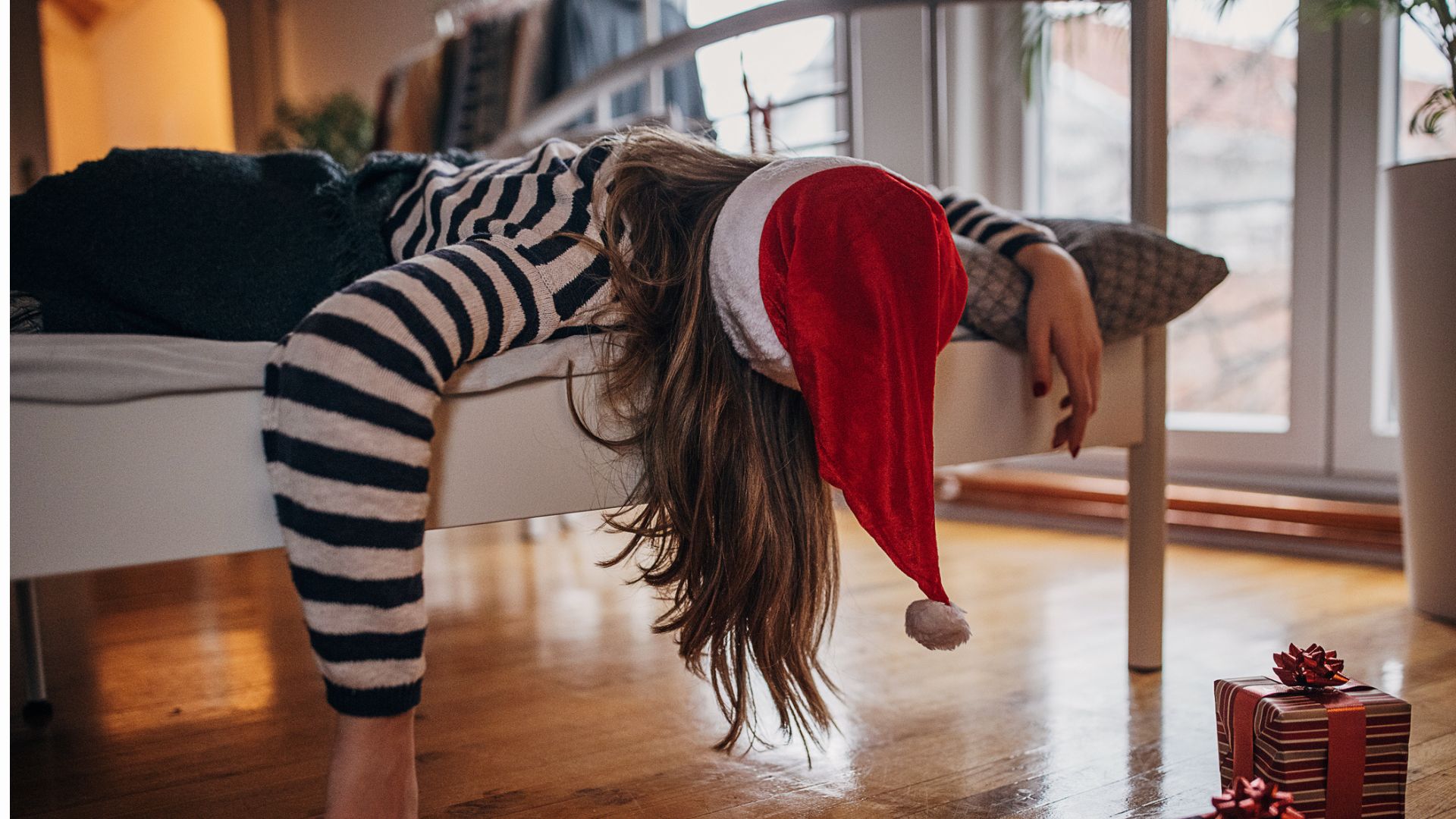
As the festive period rolls around, our diaries tend to fill up with social plans that often revolve around alcohol. It's no secret that these events and the alcohol that comes with them can wreak havoc on sleep, leaving us feeling washed out.
From sleeping on the best mattress for your sleep needs to maintaining a nighttime routine when you can, there are things you can do to salvage your sleep amid festivities.
Alcohol and quality sleep don’t go hand in hand
However, there's one drink in particular that experts warn partygoers against consuming for the sake of their sleep — espresso martinis. This is because of the cocktail's potent blend of alcohol and caffeine, which can leave you feeling wide awake hours after drinking it.
This Christmas, we've asked Dr. Jagdeep Bijwadia, MD, medical director at Complete Sleep, and registered nutritionist Shelley Balls for the run down on which drinks we should be avoiding at festive parties to protect our sleep.
How does alcohol affect sleep?
While alcohol is a depressant that initially sends you to sleep faster, it significantly interferes with the body's natural biological clock, leading to frequent awakenings and disjointed sleep cycles.
Studies have shown that alcohol suppresses the natural production of melatonin (the sleepy hormone) by up to 19%. This reduces sleep quality and overall quantity, meaning you wake up feeling more groggy and less well-rested.
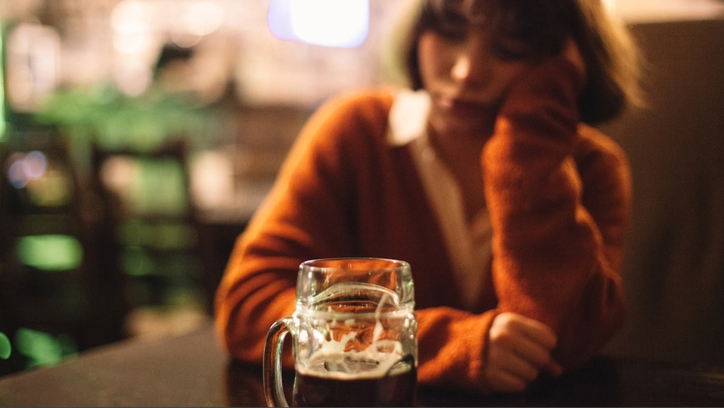
Balls explains that a combination of less REM sleep and more light sleep have a negative impact on sleep quality. She says: "When you go to bed with alcohol in your system no matter how much, you’re likely to experience more deep sleep—and less REM sleep than usual at first. REM sleep is the deepest and most restorative sleep stage".
She adds: "Later, after your body has metabolized the alcohol, you’re likely to experience a rise in light sleep. Increased light sleep can lead to frequent awakenings and fragmented, low-quality sleep."
Which alcoholic drinks are the worst for sleep?
Any alcoholic drinks can sabotage sleep but, depending on the strength of the beverage and what you mix the alcohol with, there are some that are worse than others.
It will come as no surprise that the stronger the drink, the more harm it has on your sleep. So, Balls recommends opting for lower alcohol content drinks like beer which has 5% alcohol and wine which has roughly 12% compared to distilled liquor with around 40% alcohol.
Additionally, she warns against cocktails and spirits that mix caffeine with alcohol are essentially a recipe for poor sleep (uh-hum espresso martinis and rum and cokes). This is because when you ingest caffeine, your body suppresses adenosine, a natural chemical in the body that regulates wakefulness and sleepiness.
Alcohol, on the other hand, causes adenosine to accumulate, making you feel drowsy. When the two are ingested together, caffeine can mask the depressant effects of alcohol, meaning drinkers feel they can handle more alcohol, creating more risk of harm from excessive drinking.
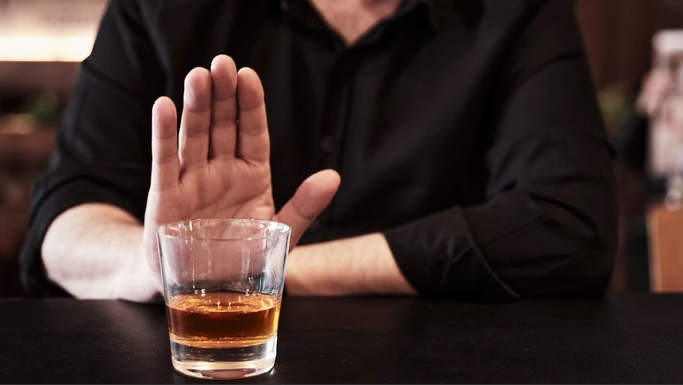
There's also a double hit of dehydration with alcoholic drinks containing caffeine and both remove water from the body, which is the main reason you wake up feeling awful after a night of booze.
Dr Bijwadia adds: "Sweet wines or flavored alcoholic beverages with high sugar content can also cause blood sugar spikes and crashes during the night, contributing to disrupted sleep."
How alcohol impacts sleep
From savaging sleep quality to increasing the chance of you snoring, alcohol can negatively impact your sleep in many ways. Here's a few ways drinking can reduce the quality of your rest, according to Dr Bijwadia.
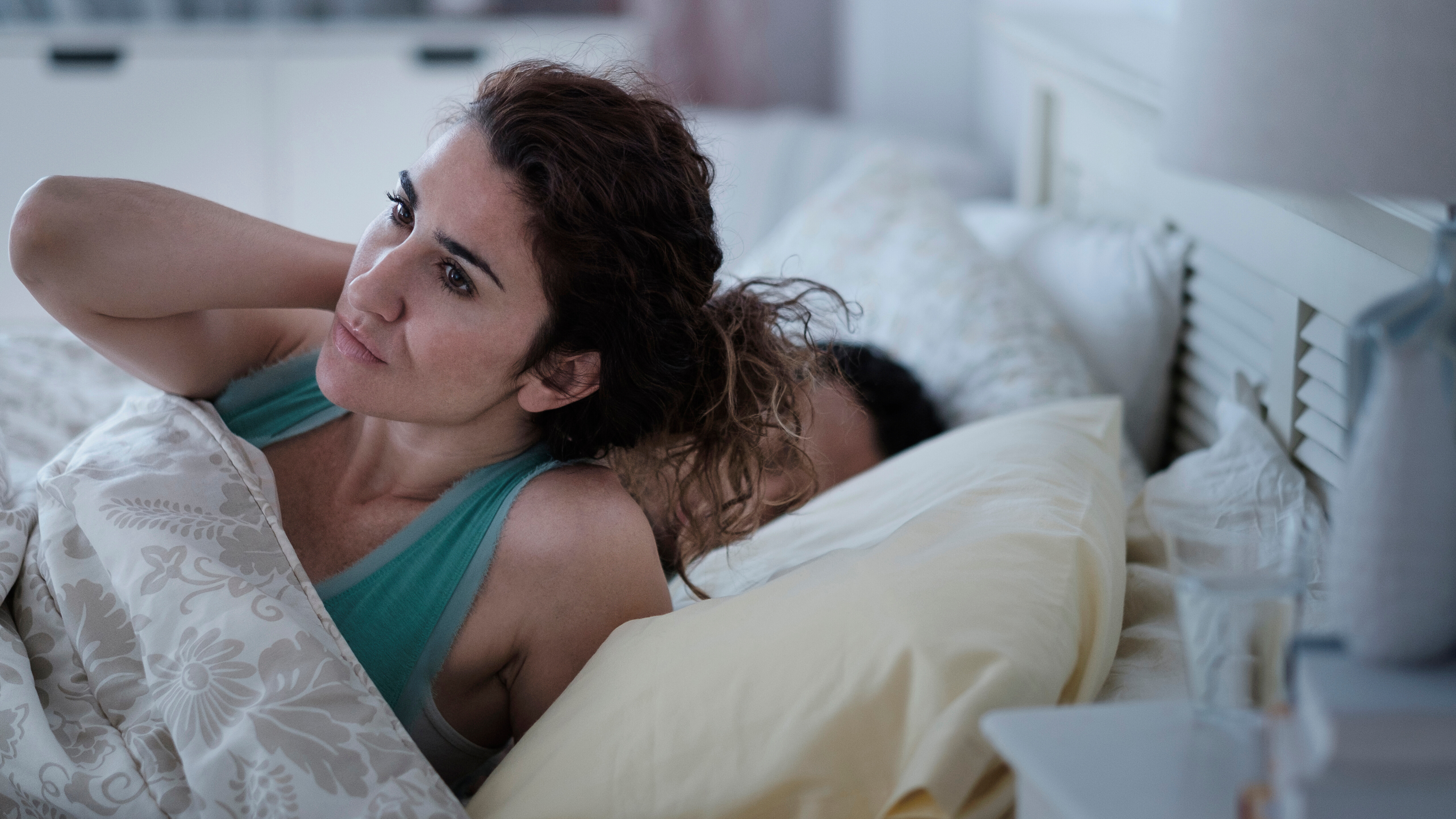
1. Insomnia
While alcohol can make you drop off quickly the night you drink it, it reduces sleep quality throughout the night, causing insomnia. As Dr Bijwadia explains: "Initially, alcohol may help people fall asleep faster due to its sedative effects, which can suppress the brain's excitatory activity. However, this initial benefit is short-lived." Plus, its anxiety-inducing effects can cause insomnia the following nights.
2. Reduced sleep quality
Alcohol alters sleep architecture, reducing its overall quality and time spent in deep, restorative sleep, leading to a fragmented and less refreshing sleep experience. Dr Bijwadia explains: "Alcohol disrupts the normal progression of sleep stages, especially during the second half of the night. It suppresses REM (rapid eye movement) sleep, the critical stage associated with dreaming, memory consolidation, and emotional processing."
3. Dehydration
As a diuretic, alcohol removes water from the body, increasing the need to urinate throughout the night which disrupts your sleep. It can also make you feel hot and sweaty leading to restless sleep and cause headaches which make it harder to fall asleep and sleep peacefully.
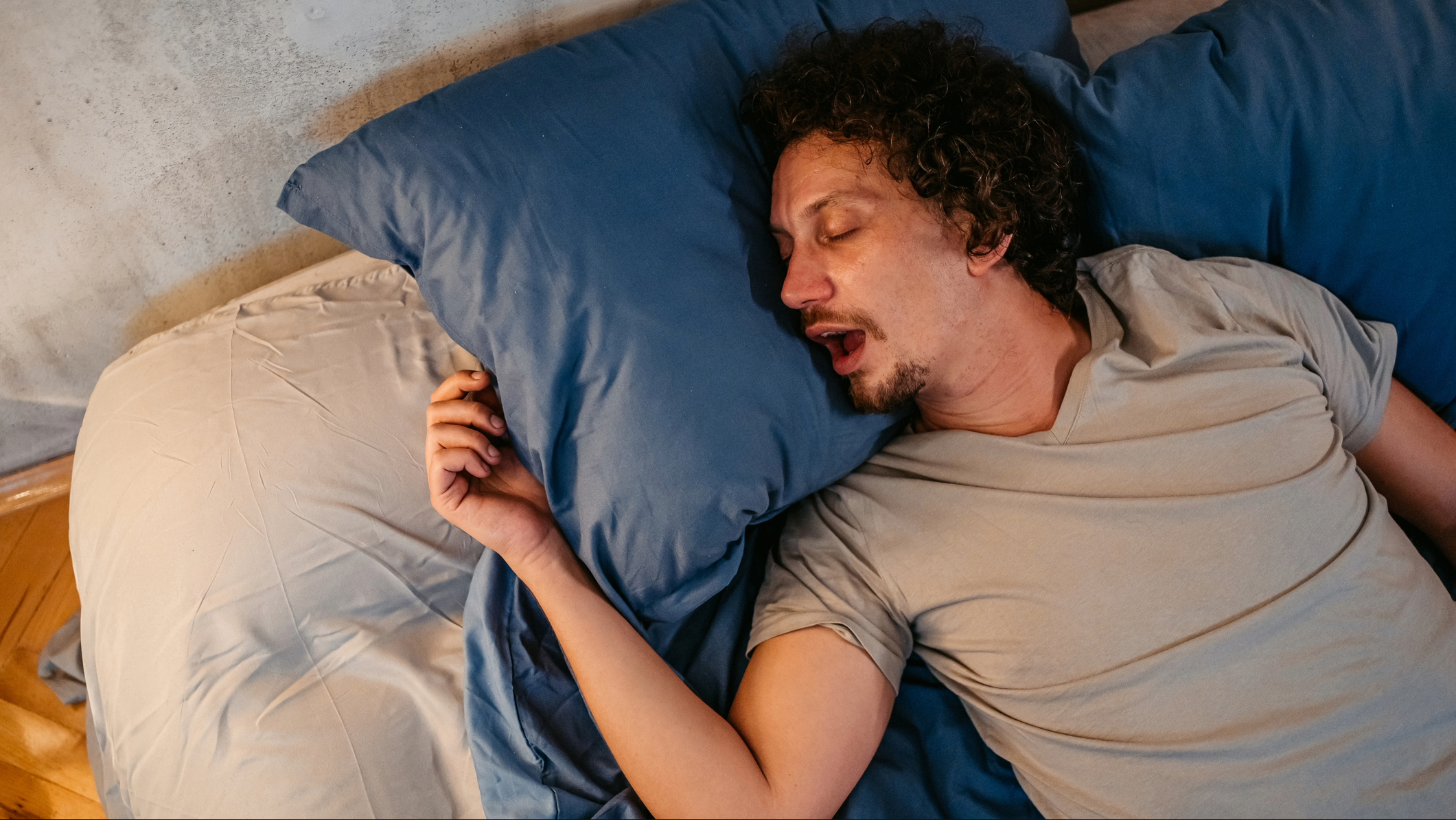
4. More snoring
Alcohol can worsen snoring by relaxing muscles in your throat and mouth, making it harder for air to flow smoothly to your lungs. This means you have to work harder to inhale air which causes vibration of the soft tissues in your throat leading to louder breathing and snoring.
5. Increased sleep apnea
Similarly to its effect on snoring, alcohol can worsen sleep disorders like sleep apnea as it stops you breathing properly at night. Again, this is because it relaxes the throat muscles, increasing the likelihood of airway collapse. Medical research shows it can also reduce brain activity, which may lead to more frequent pauses in breathing.
How to consume alcohol without ruining your sleep
Alcohol and quality sleep don’t go hand in hand. But, with careful timing and moderation, you can minimize the impact a Christmas tipple has on your sleep. These 5 expert-approved tips can help you enjoy the party season without derailing your rest entirely.
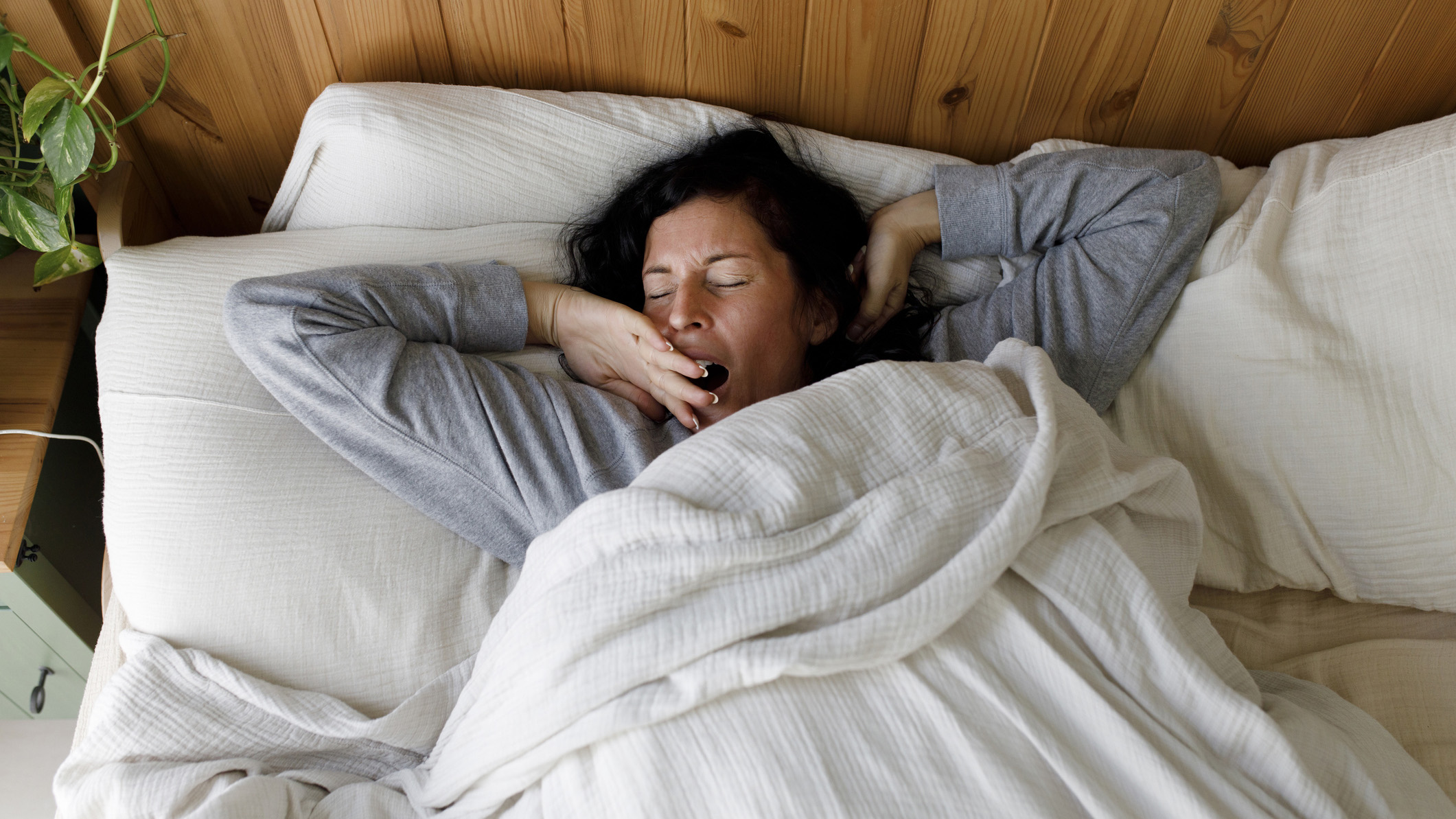
1. Drink water alongside alcohol
One tequila, one glass of water, please! As dehydration disrupts sleep and alcohol is a massive dehydrating agent, one of the keys to getting better sleep after boozing is, no surprise, staying as hydrated as you can. Dr Bijwadia says: "Stay hydrated by drinking water alongside and after alcohol to counteract its dehydrating effects and reduce nighttime awakenings."
2. Time your drinks
Your body needs time to digest the alcohol before you can any decent sleep. Therefore, experts recommend having a cut-off time where you switch from alcoholic to soft beverages — you'll thank yourself in the morning. Dr Bijwadia says: "Avoid drinking close to bedtime, allowing at least 3-4 hours for your body to metabolize the alcohol before sleeping."
3. Moderate your drinks
Dr Bijwadia advises: "Consuming alcohol in moderation and choosing low-alcohol options can reduce the severity of sleep disturbances." Moderating your drinks will not only protect your sleep, but also your overall health. You can wave goodbye to the hangover when you drink more consciously too.
4. Line your stomach
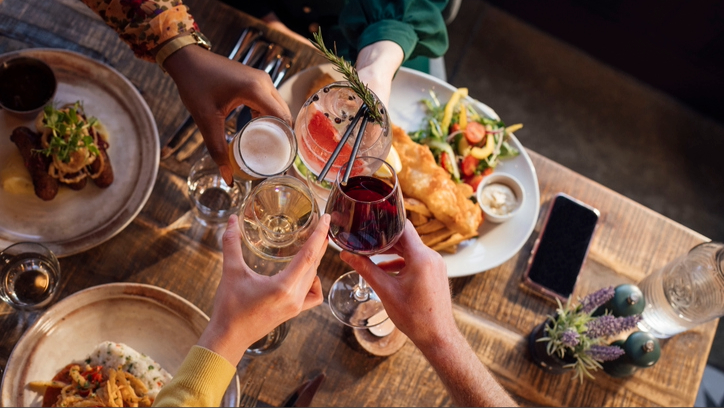
We don't mean to sound like your mother, but a good meal before hitting the booze will do wonders for your sleep. Dr Bijwadia says you should "pair alcohol with a balanced meal containing protein, healthy fats, and complex carbohydrates." This will slow down the absorption of alcohol and stabilize blood sugar levels, which helps avoid sleep-disrupting energy crashes.
5. Be mindful of mixers
Making up a large part of your beverage, its important to pay attention to what your mixing your alcohol with. Yes, mixers are soft drinks, but they can be just as harmful as alcohol when it comes to your sleep. Generally, experts warn against mixers containing caffeine or excessive sugar as they interfere worst with relaxation, blood sugar levels and, therefore, sleep quality.


